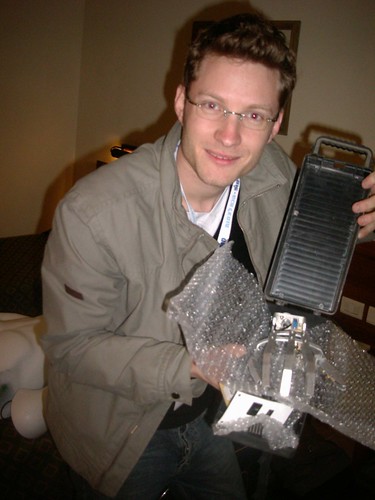![]() Earlier this month, Jon Brodkin of Network World named Axxana to his list, “10 start-ups to watch in ’09“. Today, he included the enterprise storage company as one of five vendors who are pushing flash technology for the enterprise in “How flash is changing storage…”
Earlier this month, Jon Brodkin of Network World named Axxana to his list, “10 start-ups to watch in ’09“. Today, he included the enterprise storage company as one of five vendors who are pushing flash technology for the enterprise in “How flash is changing storage…”
In October 2008, Axxana exited stealth mode at the Storage Networking World conference to introduce its enterprise data recorder, which is similar in idea and design to an aviation black box. Amidst a crowded database storage and recovery market, Axxana’s innovative technology promises no data loss, unlimited distance and cost effectiveness.
According to Axxana’s website,
“EDR (enterprise data recording) combines aviation Flight Data Recorder (Black Box) expertise with newly developed technologies to address today’s most pressing data protection challenges – data loss, distance between primary and EDR data centers and cost.
The Axxana Phoenix System (Black Box) is located near the storage system at the primary data center and records a synchronous data stream from the storage. At the same time, an asynchronous data replication system is moving data to a secondary data center (the remote recovery site). The Phoenix Black Box has to protect only the Gigabytes of data that would have been lost in a typical asynchronous replication scenario. Data is protected inside the Black Box during the course of the disaster and can be immediately extracted.”

Data extraction in an emergency is achieved either by:
* Physically locating the system by tracking the homing signal and connecting a laptop with an Axxana software component to the Phoenix System™ at the disaster site, or
* The self sufficient and well protected system transferring the data to the secondary site using highly resilient cellular broadband technology.
The technology is the first to achieve all of the following:
* Zero post-disaster data loss (RPO=0, as with synchronous replication)
* Unlimited distance to DR data center (as with asynchronous replication)
* Quick data recovery (very short RTO)
* Significant operational-cost reductions for data protection by enabling the use of existing data center assets, and low-cost commodity communication lines
According to Brodkin, the Phoenix System is currently in Beta and will be available at the end of the first quarter. With a cost in the six-figure range, the Phoenix will appeal most to customers in the financial services, healthcare, manufacturing, retail and government industries.



 The
The 